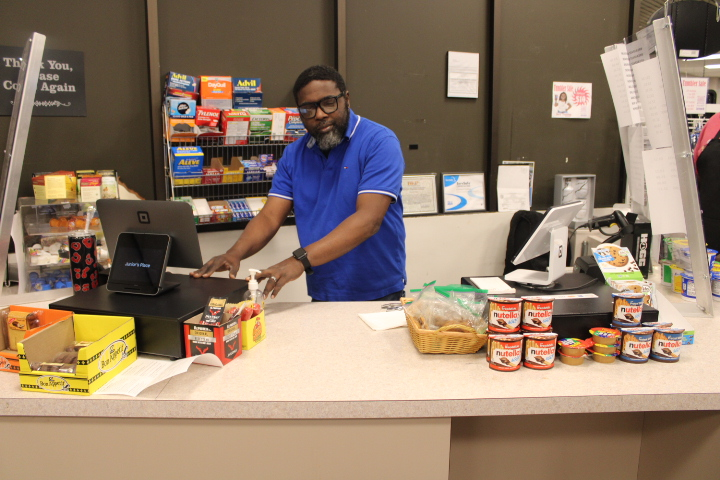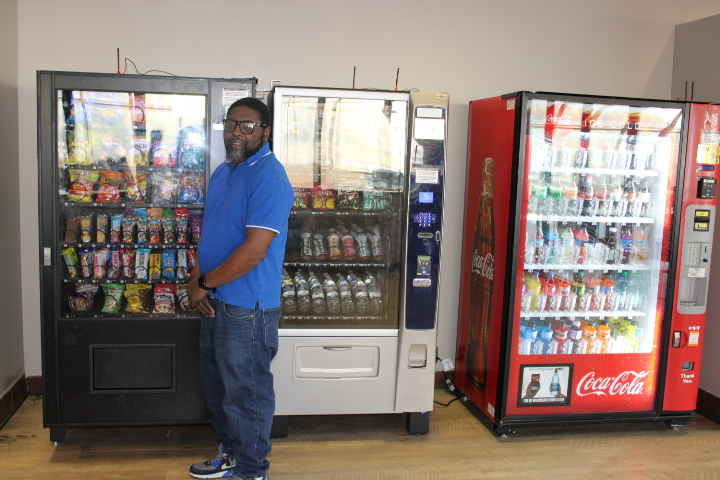
Entrepreneur Defies the Odds with Assistance from GVRA
In 2019, Stephen Thomas was involved in an automobile accident that forever changed his life. He survived the crash, but injuries he sustained caused him to gradually lose his eyesight. When Thomas met with his ophthalmologist, the doctor told him he would most likely never work again. “My eye doctor told me to accept that I was retired. But I couldn’t accept that,” Thomas exclaimed. “Somehow, some way, I was going to work again.”
Shortly after the accident, Thomas underwent eye surgery. The ophthalmologist was able to reattach Thomas’s retina in one eye, and the surgery was successful.
Having previously worked in the warehouse industry, Thomas acknowledged he would probably not return to that type of environment. “I had to accept my new reality,” he noted. “I had to accept my limitations, and I was determined to find a path forward based on those limitations.”
Discovering Services Offered Through GVRA

Thomas discovered GVRA through the internet. He wanted to support himself, so he went online to search for career pathways for individuals who are considered Blind/Low Vision (BLV). After Thomas completed the GVRA intake process, he was assigned to a counselor in the Tucker office.
Initially, Thomas told his counselor he was considering logistics as a possible career field, and sought her help developing a plan that would lead to a job. As they explored logistics together, Thomas realized he would have to pursue a degree program to secure a position in logistics, and he wasn’t prepared to make the time commitment that is necessary to earn a degree in logistics.
Thomas credits his counselor for introducing him to the Business Enterprise Program. The intensive curriculum is designed to help blind-low vision individuals learn about operating food service facilities in federal and state government buildings. The goal of the program is to assist individuals on their paths to becoming business owners. The training program features courses in food service management, customer service, and merchandising.
Thomas learned more about the program from Will Graham, a BEP business analyst. “I was so impressed with what Will said about the program. I became excited about this opportunity,” he stated. “I followed up and followed up. In 2020, I became qualified to participate in the BEP training program.”
Making the Most of Opportunities

After becoming qualified, Thomas participated in six months of training. He discovered topics such as profit margins, payroll administration, and inventory control were especially interesting.
He began working as a relief operator, meaning he had not yet bid on or been assigned to a location in a government building. Originally from Bainbridge, Thomas wanted to work in the metro Atlanta area, so during the relief operator phase he maintained a vending route at the Centers for Disease Control (CDC). In that role, he kept the vending machines full and made certain they were properly serviced.
In October 2022, Thomas successfully bid on a snack bar/micro-market location at the Floyd Twin Towers in Atlanta. Since that initial bid, he has added two more locations to his BEP portfolio, and he is still responsible for his original vending route at the CDC.
Last fall, Thomas attended the 80th Anniversary celebration of BEP held at The Lodge at Callaway Gardens. “Those conferences are great because it gives me a chance to form relationships with other blind vendors,” he shared. “I like the way the conferences are structured, and the subjects taught are beneficial.”
When asked if he would recommend BEP to others, Thomas said he believes in the program. “What I say to folks is if you’re qualified to participate, then go for it. Be assertive. Follow up, follow up, follow up. Following up has been the key to my success,” Thomas explained. “Thanks to BEP, I beat the odds.”